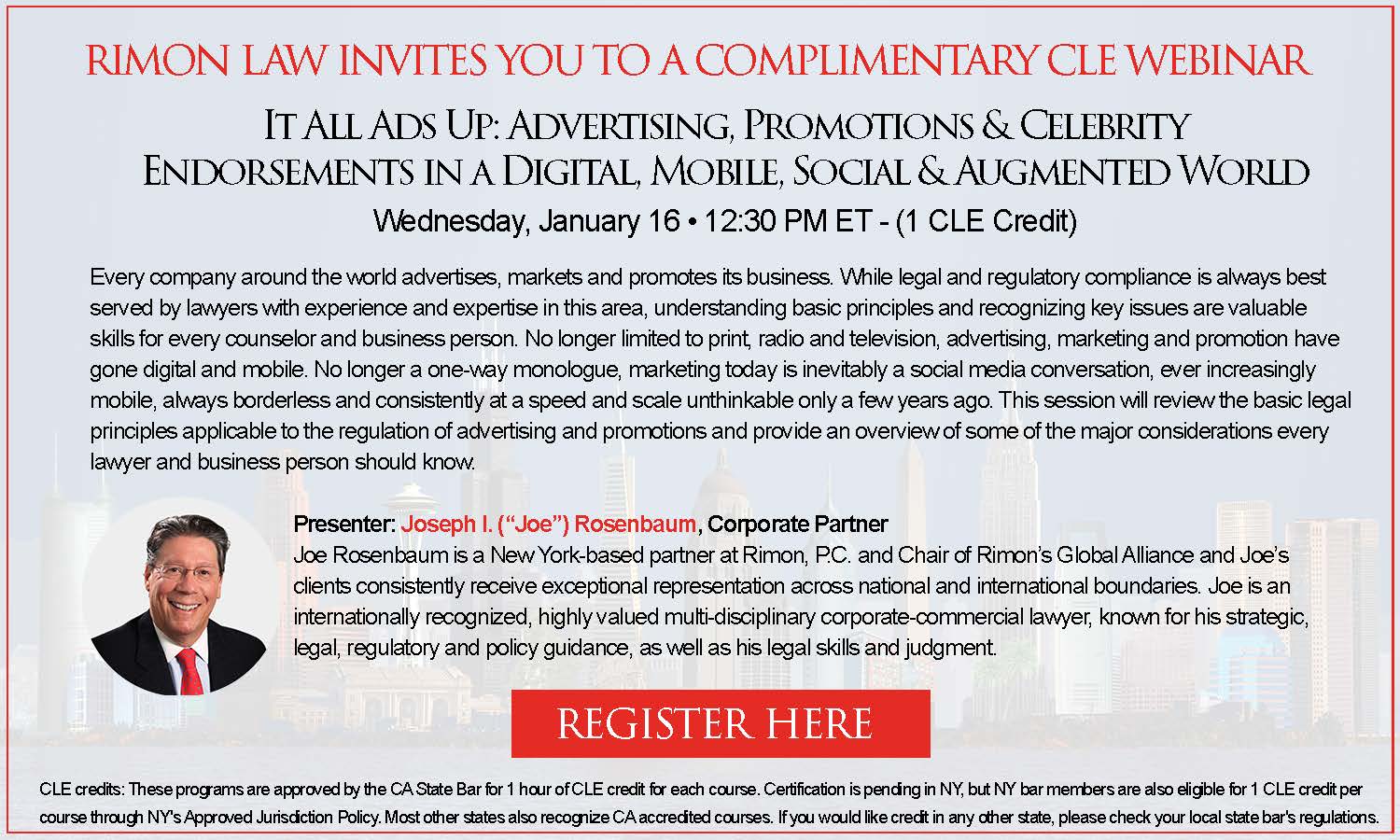The Adword Lawsuit
Now D (Defendant) buys competitor’s words from a search engine, you see.
What words do they buy? Just brands that are popular – with you and with me.
They buy words I might search for when I am looking for thee.
When we search for P’s (Plaintiff) product, they also find me.
D’s product and brand pops up with such glee; a sponsored link for consumers to see.
Now P gets really mad, call the lawyers, they do,
P’s marketers scream loudly, "Go sue, yes, let’s sue."
So do what they might and do what they may,
The lawyers do sue, in court we shall have our day!
But wait just a moment, says the court to party P,
In order to win, two things prove for me,
Did D "use the mark in commerce" for all the world to see
And can you prove that buyers, from deception and confusion are free?
Well maybe I can and maybe I can’t, says P not quite funny.
But Your Honor, you do know I’ve invested huge sums of money.
With branding and ads placed in time and in space,
How can D be permitted to stand in my place? If a "mark" I invest in, an intellectual property right,
Surely you will protect my investment before calling it a night!
Not so, sayeth the court and much to Plaintiff’s fright.
‘Tis only deception we courts should set right.
The mark is intellectual and property we know,
But in "adword" competition, deception is as far as we go.
So P left the stage, bloodied but resolved to fight another day,
But so far and at this point, the Ninth Circuit says "no way."
The English Translation
Consider the case of Network Automation, Inc. v. Advanced Systems Concepts [No. 10-55840 (9th Cir. 3/8/11)]. Network Automation sells scheduling and management software under the brand name AutoMate. Its competitor, Advanced Systems Concepts, has a product called ActiveBatch. Now in 2009, Network Automation purchased keywords, including "ActiveBatch," from Google and Bing. When consumers searched for "ActiveBatch," the displayed results carried a sponsored link to Network Automation’s website. Naturally, Advanced Systems demanded Network Automation stop using its name as an advertising keyword, claiming the use infringed its intellectual property rights. Network Automation refused and Advanced Systems sued.
In order to prevail, traditional trademark law says Advanced Systems must show that the mark was "used in commerce" and that consumers of these competitive products are likely to be confused. I won’t bore you with the legal machinations leading up the ruling last week, but first the Ninth Circuit clearly joins the Second Circuit in stating the purchase of adwords is "use in commerce" for purposes of trademark law (the Second Circuit made a strong statement to that effect in Rescuecom v. Google Inc., 562 F.3d 123, 127 (2d Cir. 2009)). But what about the likelihood of confusion?
Here, Advanced Systems failed to convince the court that a "sophisticated" Internet consumer (the target consumer for this product) was likely to be confused by the keyword advertising strategy. "A sophisticated consumer of business software exercising a high degree of care is more likely to understand the mechanics of Internet search engines and the nature of sponsored links, whereas an un-savvy consumer exercising less care is more likely to be confused," the ruling states.
While intellectual property lawyers will themselves review the Ninth Circuit’s distinction between the Sleekraft factors used to determine likelihood of confusion (named from AMF, Inc. v. Sleekraft Boats, 599 F.2d 341 (9th Cir. 1979)) and those used in the Brookfield case (Brookfield Communications, Inc. v. West Coast Entertainment, 174 F.3d 1036 (9th Cir. 1999)), you should know the Ninth Circuit felt the right factors to consider in competitive adword cases are: strength of the mark, evidence of actual confusion, type of goods, the degree of care likely to be exercised by the purchaser, and the appearance of the ads and surrounding context on the screen displaying the results.
But wait a minute. If the brand owner has invested significant time and money building brand recognition and a strong mark, shouldn’t it be entitled to protection? Put another way, if a trademark is intellectual PROPERTY, don’t I have the right to protect my asset and not give the alleged "infringer" a free ride on my investment? Well the Ninth Circuit seems to be saying "no, you don’t."
The court reasoned that trademark law focuses on protecting the consumer (and correspondingly the trademark owner) from the likelihood of confusion. Even though, over the past decade (inspired by cases like Brookfield), companies sought to emphasize the "property" aspect of their marks – protecting their investment and asset value – this court feels that is not the right approach. With this ruling, the Ninth Circuit appears to dismiss the property or asset "value" and investment argument, and makes a fairly clear statement that the rationale for protecting trademarks and the basis of permissible legal action still remains consumer deception and confusion. "Did D ‘use the mark in commerce’ for all the world to see, and can you prove that buyers, from deception and confusion are free."
For these judicial combatants, it means Network Automation can keep advertising on search engines using keywords that include the name of Advanced Systems and its products. Want to read the case for yourself? You can download your own personal copy and read the entire Ninth Circuit decision in this case right here: Network Automation, Inc. v. Advanced Systems Concepts. Need help? Contact me or the Rimon attorney with whom you regularly work.



